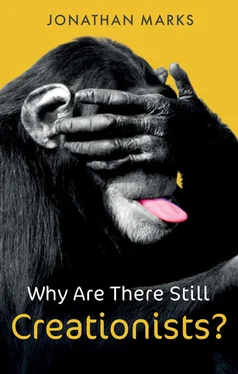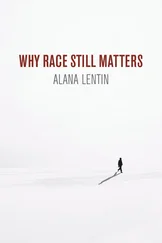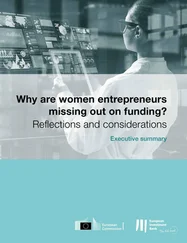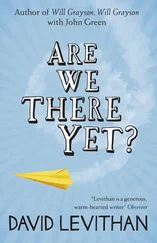Needless to say, the scientific community didn’t take that at all well, although the astronomers did a famously bad job of trying to engage with and refute Worlds in Collision . Their arguments were properly dismissive, necessarily technical, sometimes ad hominem, and occasionally incoherent. 4And although Velikovsky’s ideas eventually receded from public consciousness, there were significant parallels between Worlds in Collision and The Genesis Flood scarcely a decade later. Both prominently cast themselves against science, and in favor of their particular interpretations of the Bible. One bluntly opposed astronomy, the other geology. Yet the biblical text figures prominently in both, as misunderstood “history” in the colliding planets narrative, and as properly understood “history” in creationist narratives.
We have engaged most commonly with biblical literalist creationism as a false theory of biology, 5or as an archaic remnant of older modes of thought; 6but it is modern, not primitive, 7and treating it as a false story simply replicates the astronomers’ frustrating engagement with Worlds in Collision . It will always prove unsuccessful to engage with creationism in terms of “our story is true and yours is false” – since, at the very least, many aspects of any story of human evolution are debatable or downright inaccurate. Indeed, both evolutionist and creationist narratives of human origins have at times freely incorporated racist elements.
The thesis of this book is that modern creationism is not part of a vast conspiracy of stupid. It indeed opposes the normative views of science, but that opposition is different from the economic roots of climate-change denial, the misguided yet still unbiblical sincerity of the anti-vaccinators, or the sheer perversity of the flat-earthers. Of these popular modern “anti-science” positions, only creationism is religiously motivated. It is consequently a special kind of anti-science. To grapple effectively with creationism, then, the scholar of human origins and the scholar of religion are natural allies.
Happily, those two scholarly endeavors converge in anthropology.
This book will adopt two positions about religion and science, or more specifically about evolution and creationism, which seem unfortunately uncommon but are nevertheless rather straightforward and true. First, one can take the Bible seriously (as sacred writings, as literature, as a glimpse of ancient life, as ancient wisdom) without taking it literally. Second, most Catholics, Jews, and even Protestants aren’t literalists. Consequently, to the extent that this is a scientific and a religious issue, it isn’t science vs. religion. It is religion vs. religion about science. By implication, then, the argument between evolution and creationism is ultimately a sectarian theological dispute within Protestantism (even Islamic creationism is derived from the Protestant literature), and consequently the appropriate battleground is not science at all, but theology. Science, especially biology, is marginal to the question of whether the Bible should be taken literally.
1 1. The word “literalist” can be problematic. Many pious Christians thoughtfully interpret and understand the words of the Bible literally, without imagining it to be a science text. I am using the term more narrowly, to refer specifically to people who reject evolution on the basis of what it says in the Bible. Their theology is actually quite selectively literalist, however, as they tend to ignore or reinterpret other biblical passages (see Chapter 5). Another term often used in this context is “biblical inerrantism.”
2 2. Traditionally, this position is known as theistic evolution, but there is some classificatory confusion. For a notable example, BioLogos.org, founded by Francis Collins, the current head of the National Institutes of Health, proposes that evolution and creation constitute a false dichotomy, and stakes out a position of “evolutionary creationism”. In the present context, however, I am using “creationism” more narrowly, working within the framework of the dichotomy as it is generally recognized, and I classify theistic evolutionists as evolutionists. While I am generally in favor of calling people what they want to be called, for the present purposes I do not regard them as creationists.
3 3. S. Coakley, ‘God and Evolution: A New Solution’, Harvard Divinity School Bulletin, Spring/Summer 2007, p. 10.
4 4. “For example, it appears to be inherently impossible for Mars to collide with Venus at some point outside the earth’s orbit, as Velikovsky proposes, with the consequence that Venus is knocked into a nearly circular orbit well within the earth’s orbit, and Mars remains in a nearly circular orbit outside the earth’s orbit. This seems to be the case for the same kind of reason that you cannot pour two quarts of water into a one-quart jar; the world, as far as we can tell, simply isn’t built that way.” H. Margolis, ‘From Washington: Velikovsky Rides Again’, Bulletin of the Atomic Scientists, 20:39, 1964.
5 5. E. C. Scott, Evolution vs. Creationism: An Introduction. Berkeley: University of California Press, 2005. M. Ruse, The Creation-Evolution Struggle. Cambridge, MA: Harvard University Press, 2005. R. T. Pennock, Tower of Babel: The Evidence against the New Creationism. Cambridge, MA: MIT Press, 1999.
6 6. J. Coyne, Why Evolution is True. New York: Viking Penguin, 2009. R. Dawkins, The Greatest Show on Earth. New York: Free Press, 2010.
7 7. R. Numbers, The Creationists. New York: Knopf, 1992. L. A. Witham, Where Darwin Meets the Bible: Creationists and Evolutionists in America. New York: Oxford University Press, 2002.
1 Introducing the Ancestors
It is not a secret that about half of Americans are morons. Were the journalist H. L. Mencken alive today, he would very likely regard that as a considerable understatement. They eschew vaccinations. They take right-wing provocateurs seriously. They vote against their rational interests. They can’t distinguish between gut feelings and informed thoughts, and privilege the former over the latter when they can. And they aren’t all necessarily even the same people.
There is a veritable industry of aggrieved social critics condemning the stupidity of ostensibly modern citizens who reject science. But of course nobody totally rejects science, and maybe they have some reasons for rejecting some particular science. After all, not all science is good. Back in the 1920s, when the science of the age called for solving social problems by sterilizing the poor and restricting the immigration of genetically feebleminded Italian and Jewish immigrants, the people who were anti-science were actually in the right.
We all make decisions about what science to accept, what science to ignore, and what science to reject. You probably don’t give much thought to helminthology, the science of parasitic worms, generally found in feces. Perhaps, like me, you don’t give much thought or credence to exobiology, the science of non-existent extraterrestrial life. You may never even have heard of quantum electrodynamics, but it sure sounds scientific.
This book is about the rejection of evolution, a science more real than exobiology, more familiar than quantum electrodynamics, and more decorous than helminthology. Evolution is the science of where we come from, a question so basic to human existence that all peoples have stories to answer it. It is about ancestry, and the framework of this book rests upon an anthropological truism: The ancestors are always sacred.
Confronting this cultural fact will help explain not only the popular rejection of human evolution, but the often bizarre and vituperative disputes within the science itself. In the 1980s, for example, scholars working on Homo habilis in Kenya fought bitterly with scholars working on Australopithecus afarensis in Ethiopia over whose fossils were more important to the reconstruction of human prehistory. Today the Kenyan and Ethiopian fossils are reconciled and have joined forces against the upstart fossils from South Africa ( Australopithecus sediba and Homo naledi ). Regardless of the zoological reality of these species, they are the subjects of mythology and nationalism, not to mention fame – which is why zoological realities and paleoanthropological realities don’t necessarily map on to one another well. The fossils are national treasures, and the species they represent are, in the broadest sense, sacred ancestors.
Читать дальше












